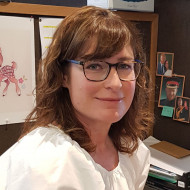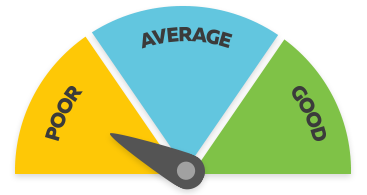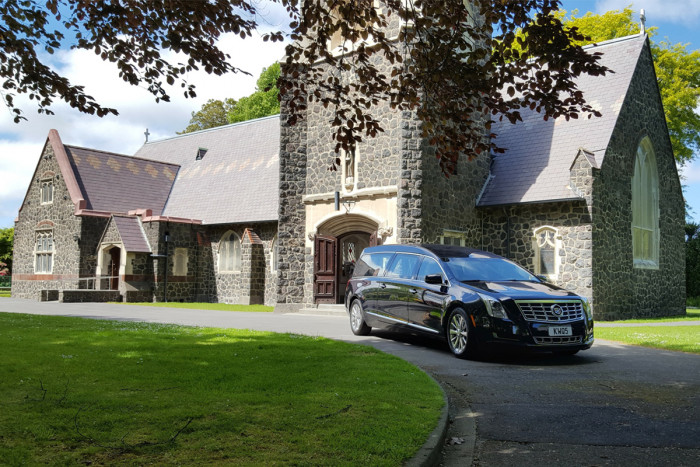Funeral Director/Embalmer
Kaihautū/Kaiwhakapaipai Tūpāpaku
Alternative titles for this job
Funeral directors/embalmers organise and direct funerals, register deaths, and prepare human bodies for visits by families, and for burial or cremation.
Pay
Funeral directors/embalmers usually earn
$50K-$60K per year
Source: Funeral Directors Association of New Zealand, 2020.
Job opportunities
Pay
Pay for funeral directors/embalmers varies, but they usually earn between $50,000 and $60,000 a year.
Those running their own business can earn up to $110,000.
Source: Funeral Directors Association of New Zealand, 2020.
(This information is a guide only. Find out more about the sources of our pay information)
What you will do
Funeral directors/embalmers may do some or all of the following:
- transport bodies from homes, hospitals or accident scenes
- advise bereaved people on funeral arrangements
- prepare and casket bodies for viewing, and for burial or cremation
- organise the funeral service and reception afterwards
- transport the casket from the service to the burial or cremation site
- assist with legal details such as registering the death and dealing with ACC claims.
Skills and knowledge
Funeral directors/embalmers need to have knowledge of:
- legal and health issues relating to death
- human anatomy
- embalming, and preparing a body for burial
- various religious ceremonies, and differences in cultural and religious beliefs about the human body and funerals
- the legal obligations of working with, and taking care of bodies.
Working conditions
Funeral directors/embalmers:
- work regular business hours, but often have to work evenings or weekends and be on call
- work in offices, funeral homes, workshops and mortuaries attached to funeral homes
- travel to hospitals, homes, places of worship, cemeteries, graveyards and crematoriums, and may need to travel to accident sites to transport bodies.
What's the job really like?

Nicky Hockley
Funeral Director
Helping grieving families
"A huge variety of work is involved in being a funeral director," says Nicky Hockley. "We liaise with clergy and funeral celebrants, as well as caterers, florists and venue providers, but it’s the families who take priority.
"We provide guidance to families after their loss and help them create a meaningful ceremony. We identify what’s important to them and ask about their customs or traditions."
Life experience valuable
Nicky graduated with a Diploma in Funeral Directing in 2019, having had an interest in funeral directing since her twenties.
"Life experience plays a big part in being ready for this role," she says. "I’d been a social worker, nurse aide and nanny, so had transferable skills at the time I spoke with the manager of Lamb & Hayward Funeral Directors in Christchurch.
"When a trainee funeral director position came up not long after, I got the job."
Moving with the times
While many families prefer the traditional church-based funeral service, Nicky says they are also seeing people wanting to arrange more personalised or unique ceremonies.
"We've had families hold funerals in their homes or gardens, in marquees on farms, and at vineyards. As long as we stick to legal requirements, it's about making it a special occasion for them."
Funeral director/embalmer video
Embalming students at WelTec work on models - 2.11 mins. (Video courtesy of Radio New Zealand)
So we’re actually doing hair restoration; we’re just trying to make some eyelashes. So I guess the reason why we’re doing this is that it’s really important for families to have the best viewing picture that we can get for them, the best memory picture, because that is the last memory of their deceased that they’ll see.
Teresa: Tell me what the typical procedure is for preparing the deceased.
Jacqueline: What we first do is sanitisation, so the cleansing of the body, and then we actually commence the preservation of the body, and then we look at the presentation of the body, so creating that memory picture.
Teresa: So what are some of the things that you would do for the cosmetic side of things?
Jacqueline: Getting a photo of the deceased is really important, and talking with the family. You can always put a little bit more make-up on, it’s harder to take it off. And the thing is, that you want them to look how the family want them to look – and there are situations when that’s not possible. You know, victims of accidents and things, and we’ll do the utmost to get the best solution for everybody.
Teresa: And you’re new to this industry. So what drew you to it?
Jacqueline: I’ve always wanted to work in the industry. It’s not that easy to get into actually. So I guess what I really love is trying to make a difference for a family. I’ve had quite a bit of experience of death in my own family, and realised that if it’s done right, then your journey – the grief journey – is so much easier. And the fact that you only get one chance at this. It’s not that you can redo it. The thing is that families open up their lives to us, at a really vulnerable time for them. And we come in as a stranger most of the time, and I think the lovely part is that we never leave as a stranger.
Entry requirements
There are no specific requirements to become a funeral director/embalmer.
However, you can complete a New Zealand Diploma in Funeral Directing (Level 5).
To be accepted into a funeral directing and embalming course, you must:
- be at least 20 years old
- be employed in the industry and sponsored by your employer
- have done at least one year's work in a funeral home.
Secondary education
No specific secondary education is required for this job, but English and science to at least NCEA Level 1 is useful.
Personal requirements
Funeral directors/embalmers need to be:
- good communicators
- patient
- tactful and able to keep information private
- mature, responsible and concerned for others
- able to relate to people from a range of cultures and backgrounds
- organised and good at planning
- accurate, with an eye for detail.
Funeral directors/embalmers must also be comfortable working around dead bodies.
Funeral directors can be dealing with people in an emotional state. You need to be resilient, able to keep calm in stressful situations, and have good self-care.
Nicky Hockley
Funeral Director
Useful experience
Useful experience for funeral directors includes:
- work dealing with the public, such as in hospitality
- counselling, nursing or rest home work.
Work in make-up or cosmetics, and/or work in a hospital or laboratory is useful for embalmers.
Physical requirements
Funeral directors/embalmers need to:
- have a tidy appearance
- be reasonably fit as they often have to transport bodies and caskets
- be able to work with formaldehyde and glutaraldehyde – the two chemicals used in embalming.
Find out more about training
- Funeral Directors' Association of NZ Inc
- (04) 473 7475 - https://funeraldirectors.co.nz
- Funeral Service Training Trust of NZ
- (04) 385 9503 - fiona@fstt.org.nz - www.fstt.org.nz
- NZ Embalmers Association
- (04) 473 7475 - www.nzembalmers.org.nz
What are the chances of getting a job?
Chances best for those with funeral directing/embalming experience
Your chances of getting funeral directing/embalming work are strongest if you have relevant experience and qualifications.
Limited opportunities for those looking to get into the role
If you are starting out, chances of getting a job as a funeral director/embalmer are poor because:
- it is a relatively small occupation. According to the Census, 768 funeral directors/embalmers worked in New Zealand in 2018
- people tend to stay in the job for a long time, limiting the number of vacancies
- firms usually prefer to take on experienced people, due to the cost of training
- an increasing preference for direct cremation (where a body is taken straight to be cremated, and there may be no formal funeral) means less demand for funeral directing/embalming services.
Learning embalming skills increases your chances
You can increase your chances of becoming a funeral director by approaching a funeral firm to work as an embalmer. Embalming skills are useful to employers, and the work gives you a chance to learn other aspects of the role.
Types of employers varied
Funeral directors/embalmers can work for:
- large businesses with a number of branches
- small family-run funeral homes.
Some funeral directors run their own businesses.
Sources
- Hartstonge, L, events and marketing manager, Funeral Directors Association of New Zealand, careers.govt.nz interview, November 2020.
- Stats NZ, '2018 Census Data', 2019.
(This information is a guide only. Find out more about the sources of our job opportunities information)
Progression and specialisations
Funeral directors/embalmers may progress to work in managerial roles at funeral homes, or establish their own funeral home businesses.
Funeral directors/embalmers may specialise in either funeral directing or embalming.
Last updated 6 March 2025


